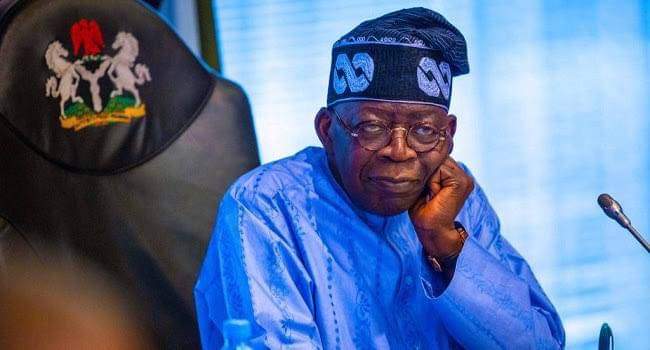Time Will Tell, By Mahmud Shuaibu Ringim
On the day of his inauguration, President Bola Ahmed Tinubu announced the removal of the subsidy on PMS. Beaming like an Olympic Gold Medalist, he appeared to champion the neo-liberal economic policies of the IMF and World Bank.
Before the dust of the subsidy removal settled, he swiftly floated the Naira, causing it to crash to an all-time low of over N1500 on average against the US dollar. Subsequently, tax increases on VAT and electricity bills were introduced.
The President had promised to continue Buhari’s economic policies, despite the significant hardships they had imposed on Nigerians, including the redesigning of the Naira, which had stalled the economy.
A New York Times report on June 11, 2024, titled “Nigeria Faces Its Worst Economic Crisis in a Generation,” captured the nation’s dire economic mood. The cost of living has skyrocketed, and inflation is rampant, leaving Nigerians in a desperate situation.
The root cause of this economic crisis is attributed to the withdrawal of the PMS subsidy and the floating of the Naira in an import-dependent economy. These policies are seen as prescriptions from the IMF and World Bank.
While the removal of the subsidy has increased funds in the federation account shared among the three tiers of government, inflation has eroded any potential benefits, as the cost of governance has risen dramatically.
The harsh economic climate has forced many manufacturing companies to close or leave the country, exacerbating unemployment and security challenges.
Presidential spokesman Bayo Onanuga’s response to the New York Times story acknowledged global economic challenges but failed to emphasize Nigeria’s unique situation. In times of economic crises, the government should focus on cost-cutting measures and reduce unnecessary expenditure.
Extravagant spending on projects like the Lagos-Calabar coastal highway, the reconstruction of Dodan Barracks, and the construction of a Vice President’s lodge in Lagos is unjustifiable under current economic conditions. Instead of implementing belt-tightening measures, the government is on a spending spree.
Dr. Mohd Sagagi from Bayero University and a former member of President Buhari’s Economic Advisory Council noted that Tinubu’s economic team is struggling to reform a poor policy environment characterized by persistent price distortion, slow growth, and widespread poverty. He humorously remarked that Nigerians are asking Tinubu to return them to where Buhari left them.
Read Also:
An open economy driven by market forces alone cannot resolve the economic quagmire. Instead, state intervention in critical sectors like food security, transportation, and infrastructure, along with support for the private sector, is necessary. Indigenous industrialists like Dangote Group and BUA Group should receive maximum support to make Nigeria self-sufficient and a major exporter of manufactured goods.
The government should also support the Dangote Refinery, akin to how South Korea supports Samsung and South Africa supports MTN and DStv. Despite some multinational corporations divesting from Nigeria, new investors from Asian countries have acquired their stakes, indicating a positive risk assessment of Nigeria’s business environment.
Dr. Sagagi suggested stimulating the economy to grow faster while minimizing the adverse effects of inflation and currency devaluation. He also recommended measures to ease the cost of living crisis.
The government must balance open market principles with controlled economic measures to foster growth and support the poor and vulnerable, who make up over 80% of the population. The high cost of living is suffocating ordinary Nigerians, and the following steps should be taken to address this:
1)Support food and beverage manufacturers with financing to resume production, similar to the CBN’s restructuring and refinancing facility.
2)Strengthen the Bank of Agriculture to finance increased food production and purchase necessary agricultural equipment.
3) Enact a raw material deletion program for industries to reduce reliance on foreign exchange.
4) Review the cash transfer policy to benefit only those certified by skill acquisition centers or the NDE.
5) Focus on reviving moribund industries and increasing food production to strengthen agriculture and industry strategic linkages.
6) Collaborate with investors to develop the solid minerals sector and reduce illegal mining activities.
7) Address power sector issues by investing in nuclear power, hydro power, and gas infrastructure, encouraging foreign and local investment.
8) Continue with the Buhari administration’s revival of railway transportation infrastructure because of its significance to boosting the economy.
Given the emerging global economic order, Nigeria must not be left behind. Leaders should be mindful of the declining influence of the American dollar and the rise of alternative payment systems by BRICS countries.
The Tinubu administration’s focus on political restructuring is a diversion from the pressing economic issues. The 1999 constitution, which legitimizes all political office holders, cannot be discarded. In 2027, Nigerian voters will judge the President, Governors, and elected representatives based on their impact on their lives. Time will tell.
Mahmud Shuaibu Ringim
HALIM Consulting Ltd
















